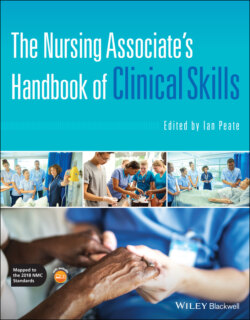Читать книгу The Nursing Associate's Handbook of Clinical Skills - Группа авторов - Страница 66
Maintaining Professional Boundaries
ОглавлениеMaintaining professional boundaries is essential in the nurse–patient relationship. The lines of professional behaviour can be easily blurred. Crossing professional boundaries can be subtle and not easily recognised. Care is so varied, and the nursing associate will at some point perform intimate tasks or procedures on patients, spending time to develop trust and a therapeutic relationship. The nursing associate must always consider the boundaries of a professional and therapeutic relationship in terms of being underinvolved or overinvolved with their patient’s care. The nursing associate must recognise if they are building a personal relationship with a patient and should understand the implications of doing so. The nursing associate must always ensure their patient’s care, treatment and needs, which are paramount. Should the nursing associate find it difficult to maintain a therapeutic and professional relationship, they must request help and support and step away from the situation. The following are examples to assist the nursing associate in understanding if they are at risk of breaching a professional boundary:
Agreeing to contact or meet a patient out of the working environment
Discussing other colleagues or your working environment negatively
Engaging in discussions regarding your personal life in detail
Giving one patient more time than another unnecessarily
Agreeing to keep secrets with a patient
Accepting a friend request on social media
Receiving gifts (Nursing and Midwifery Council 2018b)
